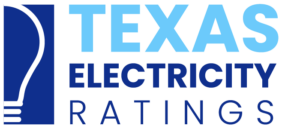I’m sure that anyone who’s been keeping an even casual eye on the news cycles the past few weeks have seen a number of articles written about the new EPA changes and how they will effect our Texas electricity market. The act that has been pushed through the EPA by our current administration is called the “Cross-State Air Pollution Rule.” You can read a number of articles attacking it from different angles here, here, and here. There’s a lot to wade through in regards to the different accusations and concerns flying out there about this new ruling, as well as a lot of anger and vitriol. I’m going to skip that, however. I just want to take a look at the plan, as well as how it could potentially effect the retail Texas electricity market.
First off, lets take a quick look at what the plan is, and why it is going to effect deregulated electricity in Texas. The rule is designed to lessen certain kinds of emissions, lessening air pollution, specifically the kind of pollution that will float into and contaminate the air of other states that didn’t produce the pollution. In terms of a practical description, the plan is attacking the emissions that are produced by coal burning plants, of which Texas has many.
Why do the coal plants matter for our electric rates? We all know that a bulk of our electricity plants are natural gas plants, as well as the fact that the cost of natural gas is what sets electricity prices for the market. So why should the coal plants matter? Well, the first answer is that while those things dominate the market and set the rates, it doesn’t mean that the coal plants aren’t an important part of that product. If these plants get shut down (not all of them will, but many might) that means a larger burden has to be carried by the remaining plants. Or if the plants have to be fitted with expensive technology to lessen emissions, then that cost will translate into higher energy prices from the coal plants. Less plants carrying a heavier burden will also mean higher electric rates. This will all translate into higher prices for Texas electricity customers.
And that’s not all. The biggest issue that ERCOT has with this situation is that removing these coal plants will cut heavily into the minimum amount of electricity needed in the grid to consistently keep up with demand. This should be especially fresh in the minds of Texans considering the issues we’ve had recently. Just this past winter the entire state had do deal with huge rolling blackouts because of a demand shortage due to historic cold freezes which took several electric generation plants offline. The rolling outages kept people from suffering without energy too long, but the truth of the matter is that the grid didn’t have enough electricity to meet with demand. Additionally, there’s been several shorter blackouts all over Texas because the historic drought has upped the demand for electricity to the point the grid is having trouble meeting demand. And this is happening without any specific plants being offline or broken. So things are pretty tight right now. Imagine what would happen if we lost the use of several of our plants permanently? Naturally ERCOT is concerned that this new EPA law will seriously harm our ability to meet general electricity demand for the entire state. And any shortage in demand also will contribute to higher prices. And right now, Texas has the lowest energy prices in the United States.
Another big facet that is enraging people over this issue is the potential loss of jobs, as well as the accusation that Texas wasn’t given enough notice before landing on this list for states that had to adopt this new law. But none of that will directly tie into this stuff in regards to Texas electricity. The other points I’ve discussed, however, will have a heavy effect on our market moving forward. So that is what people should know about how the EPA will effect Texas electricity.
